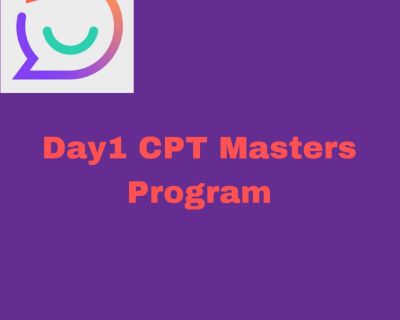Introduction
The International English Language Testing System (IELTS) is renowned globally as a benchmark of English proficiency. Its significance is particularly pronounced for non-native English speakers, as it serves as a gateway for academic and professional opportunities in English-speaking countries. Understanding the importance of IELTS, especially for non-native speakers, is crucial for those seeking to enhance their prospects.
Understanding the IELTS Exam
Structure and Components of the Test
The IELTS exam is composed of four main components, each assessing different language skills essential for effective communication.
-
Listening: This section entails listening to various recordings and answering questions. It evaluates the ability to understand ideas and detailed information, as well as the ability to recognize the attitudes, opinions, and purpose of speakers.
-
Reading: Candidates are required to read different passages and answer comprehension questions. This section measures reading skills, including reading for gist, reading for main ideas, details, skimming, understanding logical argument, and recognizing writers’ opinions.
-
Writing: This involves two tasks – one that requires describing visual information and another that involves essay writing. It assesses the ability to organize ideas, use appropriate vocabulary, and write summaries, reports, and essays.
-
Speaking: A face-to-face interview with an examiner, where candidates discuss familiar and abstract topics. This evaluates pronunciation, fluency, coherence, lexical resource, and grammatical range.
Scoring System and What It Means for Candidates
The IELTS scoring system ranges from band 1 (non-user) to band 9 (expert user). Each component receives a band score, and the average forms the overall score. Understanding the scoring can help candidates set realistic goals and measure their proficiency effectively.
Common Challenges Faced by Non-Native Speakers
Non-native speakers encounter several challenges when preparing for the IELTS.
-
Language Barriers and Vocabulary Limitations: Many candidates struggle to express themselves fluently due to limited vocabulary and understanding of complex language structures.
-
Difficulties in Understanding Native Accents: Accents in the listening section can be challenging, as they may differ significantly from the learners’ accustomed patterns.
-
Managing Time Effectively During the Test: Time constraints in each section often lead to rushed and incomplete responses.
-
Writing Coherently in Academic English: Many non-native speakers find it difficult to write academically, especially when structuring arguments logically and articulating them cohesively.
-
Anxiety and Psychological Barriers: Test anxiety is prevalent among candidates, affecting performance negatively due to stress and pressure.
Strategies for Overcoming Challenges
With the right approach, overcoming these obstacles is entirely feasible.
- Language Learning and Practice Techniques
- Building Vocabulary: Regular reading, using flashcards, and engaging in vocabulary exercises can significantly expand language proficiency.
-
Practicing Listening with Various Accents: Exposure to a wide range of English accents through movies, podcasts, and listening exercises can build familiarity and confidence.
-
Time Management Tips for Each Section: Practice with timed exercises to simulate exam conditions and develop effective time management strategies.
-
Improving Writing Skills for Clarity and Coherence: Structured practice in writing essays and receiving feedback helps in gradually refining writing skills.
-
Addressing Test Anxiety and Building Confidence: Techniques such as mindfulness, deep breathing, and mock tests can help mitigate anxiety and build self-assurance.
Triumphs and Success Stories
There are countless inspiring stories of non-native speakers attaining high scores, serving as motivation for others.
- These individuals often share common traits: dedication, perseverance, and a strategic approach to their preparation.
- Key Takeaways from Successful Candidates: Consistent practice, utilizing feedback constructively, and maintaining a positive attitude are crucial elements of success.
- Perseverance and practice are often the difference-makers in achieving the desired band score.
Resources and Preparation Tools
Numerous resources are available for effective IELTS preparation.
-
Recommended Books and Study Guides: Titles like “The Official Cambridge Guide to IELTS” and “IELTS Trainer” offer comprehensive insights.
-
Online Courses and Practice Platforms: Websites like British Council’s IELTS preparation and Magoosh offer well-structured courses.
-
IELTS Preparation Apps and Tools: Apps provide interactive and on-the-go practice to enhance proficiency.
-
Joining Study Groups and Forums: Engaging with peers through study groups and forums like Reddit’s IELTS community can offer support and share valuable insights.
Tips for the Test Day
Being well-prepared is essential, but test-day strategies are equally important.
-
Last-Minute Preparation Techniques: Revisiting key strategies and calm review sessions can help solidify readiness.
-
What to Bring and What to Expect at the Test Center: Ensure all necessary documents are ready, and understand the procedural flow of the day.
-
Staying Calm and Focused During the Exam: Breathing techniques and positive affirmations can greatly aid in maintaining composure.
Conclusion
The journey to conquering IELTS is transformative, instilling a sense of achievement and opening doors to invaluable opportunities. Achieving a high score is not solely about mastering English but also about overcoming personal challenges and growing through them.
Call to Action
Start preparing today! Join our community for more insight, tips, and support to excel in IELTS and embark on your desired academic or professional path.
Additional Resources
- Links to Official IELTS Materials and Websites: Visit official IELTS website for authentic materials and guidance.
- Contact Information for Further Guidance and Support: Feel free to reach out through our blog for any additional support or queries.
By understanding the challenges and adopting effective strategies, success in IELTS is within reach for every non-native speaker aspiring to triumph in this crucial endeavor.








